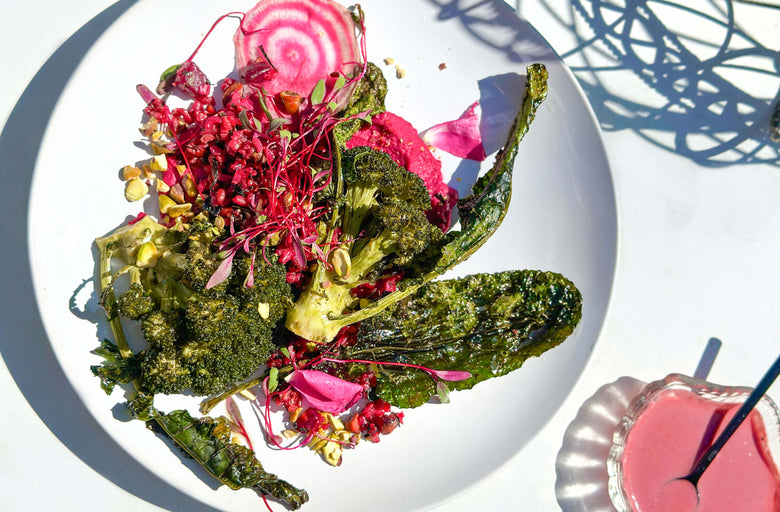“The moment I knew this would be the work I wanted to do manifested early in childhood when I remember seeing people suffering in my community. I remember telling my mom that I was going to do something about that,” says Columbia-educated psychologist, therapist, and educator Dr. Mariel Buquè. The New York City-based healer found her calling early. Today, Dr. Buquè provides therapy and instructs courses on the culturally-responsive delivery of mental health care and the decolonization of therapeutic practices. Her clinical work focuses on healing wounds of intergenerational trauma for Black and Indigenous People of Color (BIPOC) in addition to conducting mental health and anti-racism workshops around the country on structural racism and cultural competency.
“In my late twenties I realized that there is a world of mental health through which I could help people reduce their suffering and live more fulfilled lives,” Dr. Buquè explains. Her unique style of therapy aims to restore people’s souls—a profound modality of healing that happens on both a personal and collective level. She also believes this soul work is intrinsically linked to a healthy, thriving body, and microbiome. “It’s so imperative to consider the connection between the two,” says Dr. Buquè. “Neuroscience is helping us understand this more in the past decade. It’s time our daily practices catch up to what we are starting to know about the gut-brain connection and how critical it is to our overall wellness.”
Here, Dr. Buquè shares how she uses the innate connections between a healthy body and soul and insights on how simple shifts in our everyday life can create space for true healing—from reframing your thoughts to a daily soul check-in. The results of which can allow you to proudly stand in your own magic.

Could you tell us about the work you do? How does it align with your mission of healing?
“It's one of the dimensions of healing that can actually tie multiple areas of health and wellness together. It does focus mostly on the mind, and for some of us, the mind-body connection. The ways in which I aim, and I think we, as a community of mental-health practitioners aims to heal, is to bring enlightenment to a person. Through this increased insight, knowledge of the self and of the world, a person feels empowered rather than disempowered. Oftentimes, feeling disempowered can be the undercurrent of deeper, chronic distress. We can sometimes attach a multitude of diagnoses to chronic distress and what it looks like in each person, depending on whatever symptoms are showing up. We try to break that. Break that cycle or provide people with the tools to be able to overcome it.
How important is self-awareness? Are you in a way holding up a mirror for people so that they can start to see maybe some of their habits or thoughts?
“It's about getting to the point where a person can hold the mirror to themselves. We, as therapists, are meant to be transients in a person's life. We're supposed to be a bridge and create, for the person, a line of tools that can actually help the person to then embody enlightenment and then continue that mission into the rest of their lives. But the beginning part of it is what I like to call 'the gunk' with my clients. It is the stuff that we have to pick out and get to so you are able to get to the point where things feel lighter. One of the roles of a therapist is bringing to light things that don't feel very good to talk about. The things that don’t feel very good to acknowledge about oneself. As a therapist, you have to also tap into your own intuition to be as gentle as a person needs at the moment while also making sure that you nudge in the direction of growth.”
Are there things that have happened to us in the past that we’re storing away and need to work through?
“It's a bit of the past and a bit of the present. You store past experiences that you’ve had, but also, there are times when the present tense feels like it's either helping you to stay steady while also making you hold in a lot of stress. The thing about the present is that sometimes when we're in our present selves, we're constantly thinking about the future, and that's what worry looks like. That’s what we call anxiety when it’s in chronic form. The present self is also filled with a lot of the 'gunk' or baggage—the things that need to be detoxed. These can be situated in the past, situated in the present, and sometimes even the future.”
How do you bridge the science and the spiritual in your soul work?
“I strongly believe that the two are intertwined. The mind-body-spirit is just one uniform symbiotic relationship with multiple dimensions that exists within us. It doesn't do us any good to neglect any part of it. For healers like myself, we have to consider the multiple ways in which we have to engage in the healing. That includes what that means theoretically, scientifically, and what it means in its application. As I started doing more trauma work, it was evident to me that the missing link was spirituality. I refer to this as the soul, which is the center of the hub of who we are. The mind, body, and spirit together create the soul. It's important that we don't leave any one of those behind. All three need to be taken care of. Even if we are a practitioner that only serves one of these dimensions, we integrate other healers into our work to ensure all of the dimensions are being served equally. Because we're talking about one human being that has multiple dimensions and at any point in time, if one is off, then it could very well happen to the others. And that throws off the balance we were trying to create.”
The mind, body, and spirit together create the soul. It's important that we don't leave any one of those behind. All three need to be taken care of.
On your Instagram, you often ask, “How's your soul doing today?” What’s the importance of that question?
“When I first put it out there over a year ago, I wondered if people were going to know what I meant, but I was hoping it would be well received. At the time and still today, it is one of the most engaging posts I put out there. People just really want to check in with me and with each other. In the comments, if someone mentions their soul is ‘weary’, you’ll see fellow humans say ‘It’ll get better’ or they will offer motivation such as ‘This is what I did today and I'm hoping it can be helpful to you.’ But what I really mean when I ask that is this: How are all of the areas of your life doing? Your soul involves all of you. I ask about your soul because if I ask about your mind, your body could be doing not so well, and we miss a really important component of your well being. So, I'm asking about the whole you, and it gives me an opportunity to see how are you, truly, indeed, fully, wholly. That's the purpose of that question.”

How can we start to answer it ourselves? Are there ways to tap into our soul status?
“I suggest going through different dimensions and asking the question concretely from each point of view. For me, when my gut isn't doing well, I can immediately sense how I'm doing and my mind will shift because I'm uncomfortable. So, that lack of comfort isn't going to produce a calm state, a calmer version of me. The interactions that I'm likely to have, especially in my personal world, will probably not be as somber and relaxed as I would hope. So, I have to do my own check-ins. I have to wake up in the mornings and do all of my rituals and things that I do in order to just situate myself and bring myself into a balanced state. In doing so, I have to do all of the check-ins and all of the dimensions in order to situate myself and see how my own soul is. This also allows me an opportunity to learn how to do it with others. If I am able to transition from one dimension to the other, and then finally come to the center with, ‘OK, my soul is still a little restless and working through it,' then I can learn how to do that with others. I’ll ask, ‘How's your mind? Give me some emotional words. What are you feeling at the moment?' Next is a full-body scan. ‘How's your body doing?’ ‘What is it that you've put into your body?’ Body scans also should reference medications. If people have a chronic ailment they're struggling with, either psychiatric or medical, it can throw off this soul balance. Finally, we check in with the spirit. It's important to allow an opportunity to do that. As a society, we don’t have a full understanding that the spirit need not be situated in organized religion in order to be something that is within us and actually exercised. That's why I put it into practice in my own world and in my life, so that I can also learn how I can best serve people whenever I'm asking the question.”
We all know about self-care rituals, but what can daily soul care look like?
“I think that that's something that we tend to miss out on as a part of what self-care can be. Soul care doesn’t necessarily need a designated block of time. It can be done at whatever point in the day we have. When I am taking the train to work, I can take a moment to just plug in and listen to something that can be soothing and take a couple of breaths before I start my day. Even in-between sessions, there have been times when I'll have someone that's maybe running late, and that gives me five minutes to just lock myself in my office and do a couple of breaths to transition from a better place into the next session and be more present and open. What I have done is that I've just taken those moments to just be present with myself and help myself, and try and model what I say to others to do, which is to take whatever five minutes you can in your day to exercise that soul work and bring yourself back to center. Do it as many times as is needed for you to feel like there is balance in your life.”

If there’s just one thing each day we can devote to soul work, what do you recommend?
“Upon waking up, immediately shift your thoughts to what you are grateful for. Give yourself a treat at the top of your day, because you deserve it.”
Experience a total soul refresh with Dr. Mariel Buquè by joining The RE:PROGRAM, a three-week journey to restore your body, reset your mind, and refresh your routine. Weekly lessons and exercises from Dr. Buquè are included alongside life-changing Sakara nutrition and clean, self-care essentials curated by Sakara founders, Danielle Duboise and Whitney Tingle. Reserve your spot.
Discover More Wise Woman Healers
A Doctor’s Guide to Hormones, Food and Fertility
Kundalini Teacher, Founder of the Ra Ma Institute, Guru Jagat






